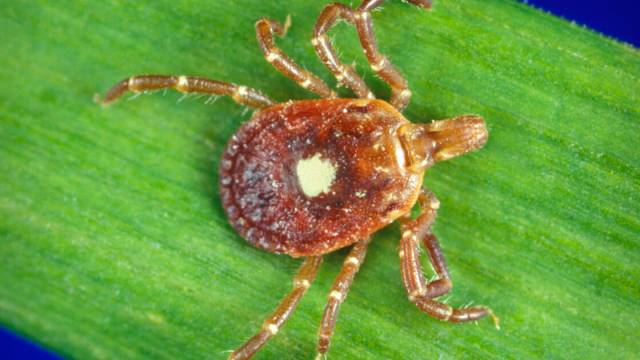A healthy 47-year-old man from New Jersey has died after consuming red meat, marking the first known death associated with Alpha-gal syndrome (AGS), a rare allergy triggered by tick bites.
The deceased, an airline pilot with no significant health issues, developed severe symptoms after eating a beef steak during a camping trip in the summer of 2024. He experienced abdominal pain, diarrhea, and vomiting, which eventually subsided.
Two weeks later, after eating a hamburger at a barbecue, he was found unconscious approximately four hours post-consumption and was later declared dead at a hospital.
Initially, his death was classified as “sudden unexplained death” due to inconclusive autopsy results. However, following his wife’s request for further investigation, blood tests indicated a severe allergic reaction to alpha-gal, consistent with fatal anaphylaxis.
An autopsy report from Mayo Clinic Laboratories revealed the victim’s tryptase level exceeded 2,000 ng/mL, a significant indicator of catastrophic anaphylaxis, corroborating the conclusion that he died from an allergic reaction linked to tick-borne Alpha-gal syndrome.
His wife noted numerous “chigger” bites on his ankles earlier that summer, likely from the larvae of Lone Star ticks, which are the primary carriers of AGS.
Alpha-gal syndrome occurs after a bite from specific ticks, particularly the Lone Star tick (Amblyomma americanum) in the U.S., which transfers the sugar molecule alpha-gal into a person’s bloodstream through its saliva, according to the CDC. This can result in a delayed allergic reaction (3-6 hours later) upon ingestion of mammalian meat (beef, pork, lamb), leading to symptoms ranging from rash and nausea to anaphylaxis.
According to the CDC, over 110,000 suspected AGS cases were reported between 2010 and 2022, but the actual number is unknown, with estimates suggesting as many as 450,000 people could be affected. More research is necessary to understand the prevalence of this condition.
Prior to this incident, fatal reactions had been theoretically possible but unverified. This documented death prompts the medical community to recognize AGS as a serious and potentially deadly condition.
The Center for Infectious Disease Research and Policy (CIDRAP) at the University of Minnesota reported that an allergist at the University of Virginia (UVA) identified this case as the first documented fatality from alpha-gal syndrome. The case study was published in the Journal of Allergy and Clinical Immunology in Practice.
Post-mortem blood samples revealed the man had been sensitized to alpha-gal, with a reaction consistent with fatal anaphylaxis. Thomas Platts-Mills, MD, PhD, the former chief of UVA Health’s Division of Asthma, Allergy and Clinical Immunology and the study’s lead author, noted that the man’s tryptase level was alarmingly high at 2,000 mg/mL, compared to the highest previously recorded level of 90.
Platts-Mills mentioned that the man had no recent tick bites but had multiple chigger bites that summer, which are often misidentified as bites from Lone Star tick larvae. He emphasized the importance of awareness for both doctors and patients in areas where Lone Star ticks are prevalent, advising that unexpected severe abdominal pain after eating mammalian meat should prompt investigation for possible sensitization to alpha-gal.
Platts-Mills indicated that while most AGS cases are diagnosed on the East Coast, Lone Star ticks have been found as far inland as Indiana, suggesting a potential for further spread.
 Telegram is where we really talk. Don't miss out!
Telegram is where we really talk. Don't miss out!








